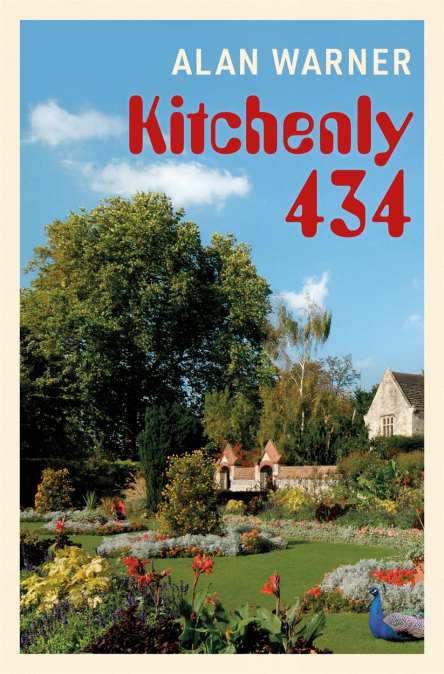
Kitchenly 434 is set in a sprawling Tudorbethan mansion in Sussex, Kitchenly Mill Race, on the cusp of the arrival of Margaret Thatcher as Prime Minister. In some ways, the last days of an Age of Innocence. Marko Morrell, guitarist in Fear Taker, is one of the biggest rock stars in the world. His demanding lifestyle means he is frequently in absentia at Kitchenly, his idyllic country retreat, and so it is his butler (or 'help'), Crofton Park, who is charged with the maintenance and housekeeping. When, one day, two young girls arrive looking for Marko clutching their copies of Fear Taker LPs, Crofton finds himself on a romantic misadventure which leads to the tragi-comic unravelling of the fantasies he has been living by. A novel about delusional male behaviour, opening and closing curtains, self-awareness, loneliness and 'getting it together in the country', Kitchenly 434 is a magnificent novel about the Golden Age of Rock in the bucolic English countryside.
Author

Note: There is more than one Alan Warner, this is the page for the award-winning Scottish novelist. For books by other people bearing the same name see Alan Warner Alan Warner (born 1964) is the author of six novels: the acclaimed Morvern Callar (1995), winner of a Somerset Maugham Award; These Demented Lands (1997), winner of the Encore Award; The Sopranos (1998), winner of the Saltire Society Scottish Book of the Year Award; The Man Who Walks (2002), an imaginative and surreal black comedy; The Worms Can Carry Me to Heaven (2006), and The Stars in the Bright Sky (2010), a sequel to The Sopranos. Morvern Callar has been adapted as a film, and The Sopranos is to follow shortly. His short story 'After the Vision' was included in the anthology Children of Albion Rovers (1997) and 'Bitter Salvage' was included in Disco Biscuits (1997). In 2003 he was nominated by Granta magazine as one of twenty 'Best of Young British Novelists'. In 2010, his novel The Stars in the Bright Sky was included in the longlist for the Man Booker Prize. Alan Warner's novels are mostly set in "The Port", a place bearing some resemblance to Oban. He is known to appreciate 1970s Krautrock band Can; two of his books feature dedications to former band members (Morvern Callar to Holger Czukay and The Man Who Walks to Michael Karoli). Alan Warner currently splits his time between Dublin and Javea, Spain.